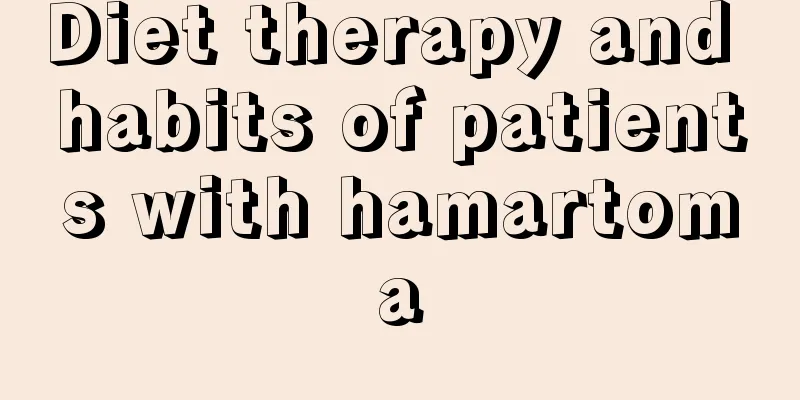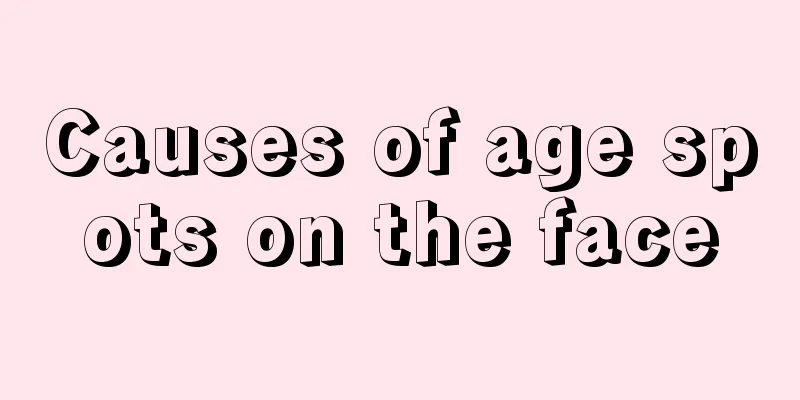Diet therapy and habits of patients with hamartoma

|
Although hamartoma is a benign tumor disease, patients should not take it lightly. The incidence of hamartoma is still relatively high. Although the disease may become malignant, its occurrence will endanger our life and health, so surgical resection is required. Nutritional diet after surgery plays a big role in the recovery of the disease. Let's take a look at the dietary therapy methods and habits of hamartoma patients. 1. 8 taels of grain should be distributed to three meals a day. Don’t eat too fine food, but mix coarse and fine food. For example, patients with renal hamartoma can eat more beans, such as mung bean porridge, red bean buns, etc. 2. There are some misunderstandings about kidney problems. People with kidney disease should eat less soy products, but kidney deficiency does not belong to kidney disease, so they can eat some appropriately. 3. Patients with renal hamartoma should eat plenty of vegetables and fruits, about one pound a day, half of which should be seasonal vegetables and green leafy vegetables. At the same time, they should eat more red (such as tomatoes) and yellow (such as carrots) vegetables with antioxidant effects. 4. Eat lean meat, fish and other foods rich in high-quality protein every day. Chinese medicine emphasizes the idea of replenishing one's organs, so it is recommended that patients with renal hamartoma eat animal kidneys once a week. 5. Eat a light and low-salt diet. Limit salt intake, especially for patients with renal hamartoma with renal insufficiency, to no more than 5 grams per day. Eat less pickled vegetables, kimchi, pickled mustard tubers, salted bread, fried dough sticks, seaweed, rapeseed, spinach, fennel, celery, day lily, radish, etc. Because these foods contain high sodium content per 100 grams. Eating more of these foods means increasing the amount of salt. 6. Eat more fresh vegetables, fruits, whole-wheat products and beans. If the renal function of patients with renal hamartoma is normal, they should eat more green vegetables and fruits to provide sufficient vitamins. If the patient already has renal insufficiency, especially when the daily urine volume is less than 500 ml, vegetables and fruits should be eaten selectively. Because vegetables and fruits are generally rich in potassium, and patients with oliguria due to renal disease have increased potassium levels in their serum. Among them, fruits with higher potassium content include watermelon, banana, pineapple, mango, jujube, cantaloupe, etc.; vegetables with higher potassium content include amaranth, spinach, celery, carrots, bamboo shoots, potatoes, etc. 7. Kidney-friendly foods: Lotus seeds, yam, walnuts, jujubes, and pork kidneys all have certain kidney-friendly effects. In addition to adjusting their diet, patients with hamartomas also need to maintain a stable mentality and eat less spicy and irritating foods to avoid wound infection, which can aggravate the reaction. |
<<: How to provide good postoperative care for hamartoma
>>: Dietary issues that patients with hamartoma must know
Recommend
Which part of the sole of the foot is the kidney?
Nowadays, many people like to have foot massage. ...
Can baking soda bleach clothes?
It is very common in daily life for clothes to be...
What should I do if my baby crosses his eyes?
Nowadays, many young parents have no experience i...
There is a hard bone bulging on the forehead
A hard bone bulge on the forehead may be caused b...
The medicine feels stuck in my throat when I take it
If you are not careful when taking medicine, you ...
What are the differences between the symptoms of cervical cancer, uterine cancer and ovarian cancer
Symptoms of cervical cancer, uterine cancer, and ...
How to quickly eliminate mouth sores
Mouth ulcers usually need to be treated under the...
What are the symptoms of breast cancer
What are the symptoms of breast cancer? In recent...
Can water be added to breast milk?
When many parents are feeding their babies, they ...
Are fibroids contagious?
Is fibroid contagious? Infectious diseases are ca...
Root canal expansion steps
Root canal treatment is a common method for treat...
How long can you live with early stage lung cancer
How long can you live with early stage lung cance...
What should you pay attention to in your diet during radiotherapy for lung cancer? Introduction to dietary principles during radiotherapy for lung cancer
Experts say that lung cancer patients are in grea...
What are the advantages of interventional treatment for liver cancer? Detailed description of several advantages of interventional treatment for liver cancer
Although the term "interventional diagnosis ...
What kind of bra should I wear if I have a flat chest?
Whether the breasts are plump or not is an issue ...









